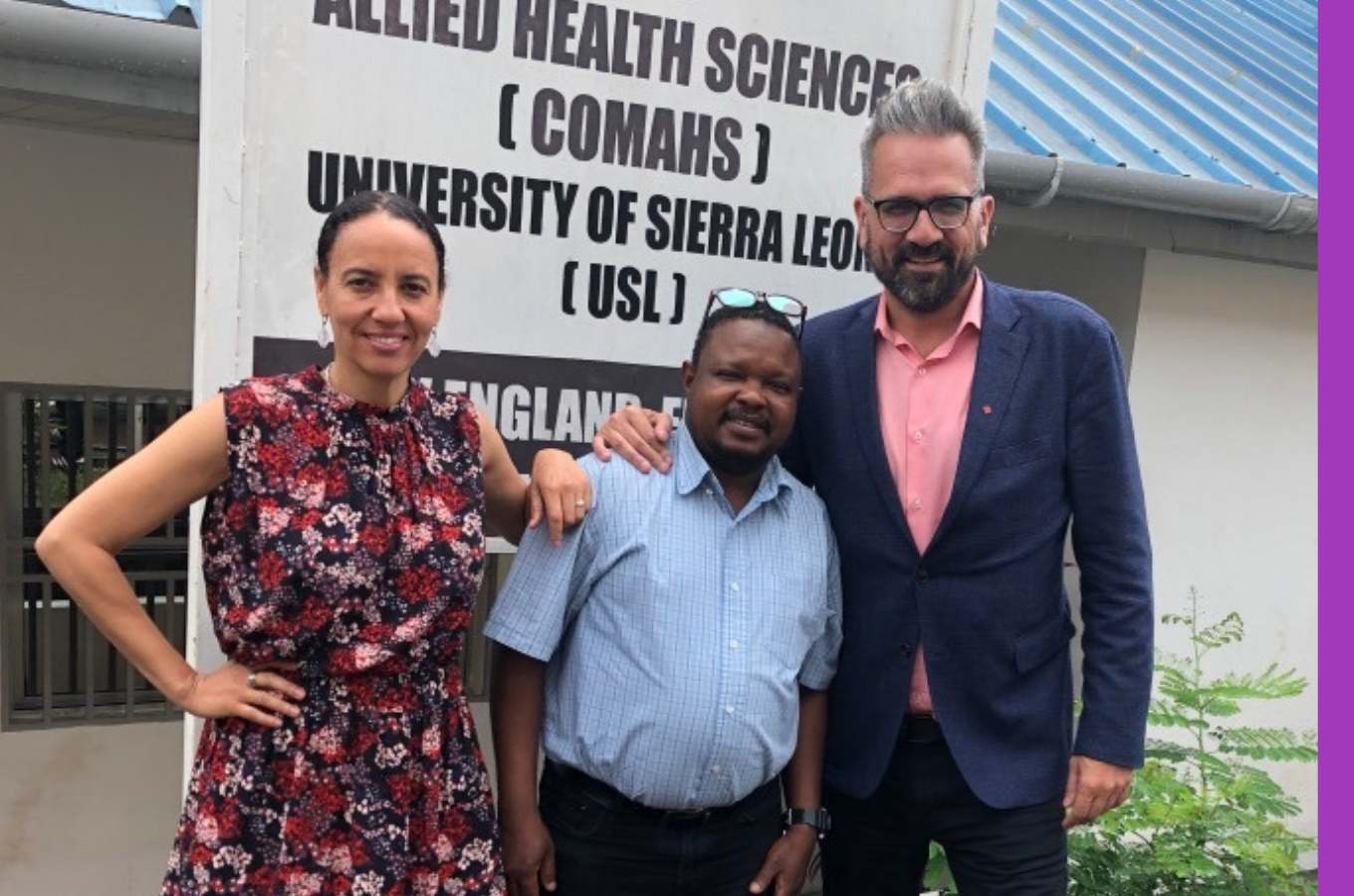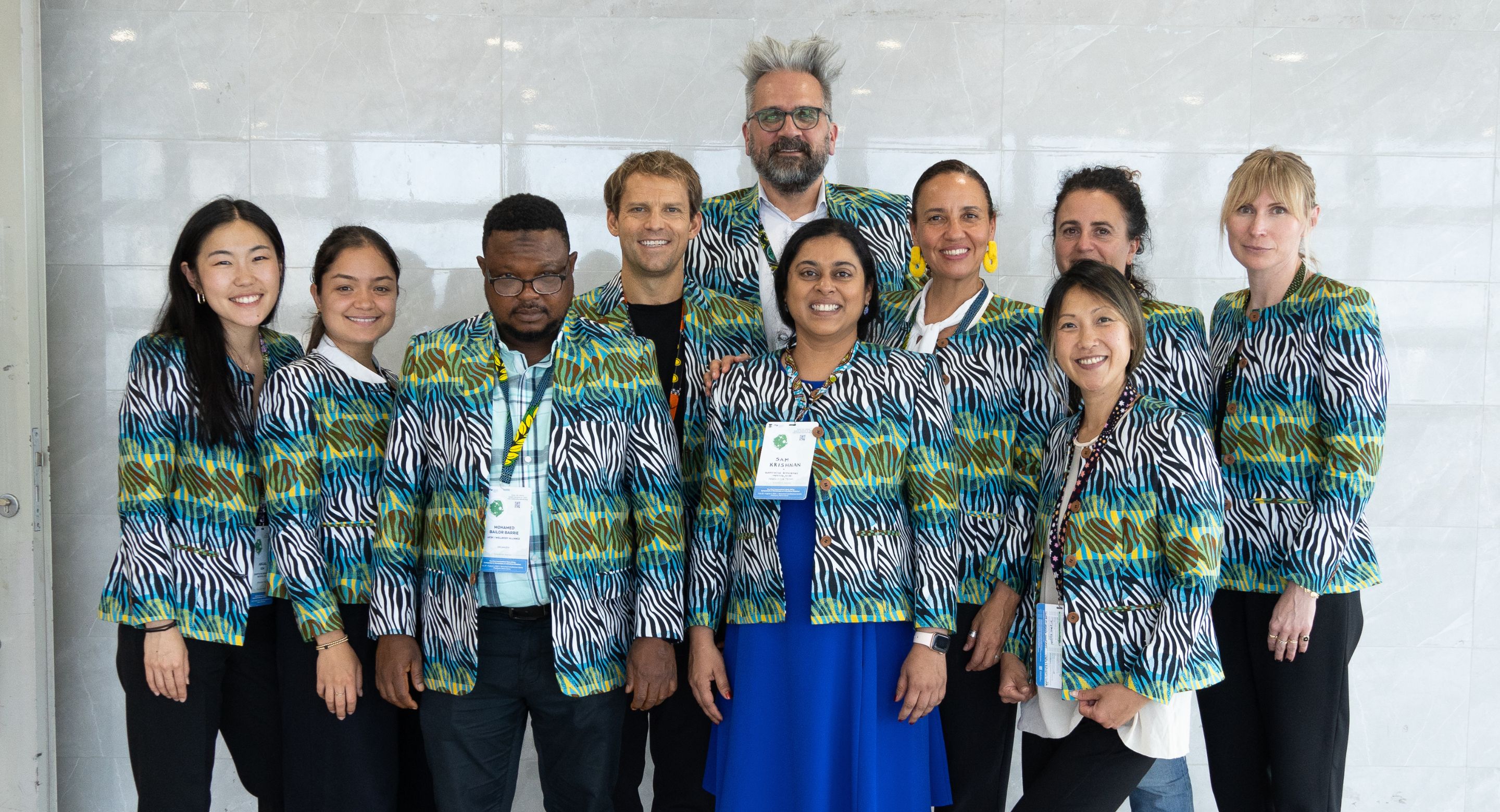
UC San Francisco is launching a new initiative to help African scientists collaborate with infectious disease experts around the world and build a foundation for sustainable research.
The Paul Farmer African Initiative for Research (PFAIR) builds upon the success of the First International West Africa Symposium & Workshops on Infectious Diseases , which was hosted last year by the Sierra Leone Ministry of Health and the Quantitative Biosciences Institute (QBI) in the UCSF School of Pharmacy.
The new initiative, which is led by QBI, will be funded primarily through philanthropy to support mentorship and research capacity, platforms for knowledge exchange, and an international exchange program for promising early-career African scientists.
Sub-Saharan Africa lost billions of dollars for programs to combat malaria, HIV/AIDS, and other infectious diseases because of the recent gutting of U.S. Agency for International Development (USAID).
Infectious diseases know no borders. In order to prepare for the next pandemic, we need to set up a worldwide collaborative network."
While UCSF's efforts predate these developments, the need to build the capacity within Africa to advance infectious disease research without relying on the U.S. government has never been greater.
"Infectious diseases know no borders. In order to prepare for the next pandemic, we need to set up a worldwide collaborative network," said Nevan Krogan , PhD, QBI's director and professor in the Department of Bioengineering and Therapeutic Sciences. Krogan organized the symposium with Mohammed Bailor Barrie, MD, PhD, MSc and Jacqueline Fabius, the Chief Operating Officer of QBI.
"It's only through large-scale collaborative effort - where scientists from different countries come together to focus on the same problem from diverse but complementary angles - that we can truly unlock complex biological systems," Krogan said. "That's how the breakthroughs happen."
An initiative built on a legacy
Infectious diseases are most prevalent in sub-Saharan Africa, particularly West Africa. Yet there had never been a conference in West Africa that brought together infectious disease researchers until last year's conference in Sierra Leone.
More than 450 researchers from a dozen African countries gathered in Freetown, Sierra Leone from July 29 to August 4, 2024, for a two-day symposium followed by four days of interactive activities including a visit to a medical clinic in the rural region of Kono, which was an epicenter of the 2013-16 Ebola virus outbreak.
Already, UCSF researchers are working with young scientists in the region to help turn their life-saving ideas into projects that could receive grant funding. Collaborations using such technologies as mass spectrometry and artificial intelligence to analyze Ebola, Lassa fever, and malaria are in the works.

PFAIR aims to carry on the legacy of the renowned global health pioneer, Paul Farmer, MD, who dedicated his life to caring for the world's poorest people. Farmer, co-founder of the global nonprofit Partners In Health, died unexpectedly at age 62 in 2022 from an acute cardiac event in Rwanda.
Barrie, MD, PhD, MSc, a physician from Sierra Leone is currently working with QBI to establish PFAIR. He received his doctorate in global health sciences at UCSF, served as the former executive director of Partners In Health in Sierra Leone, and considered Farmer his mentor.
"He wanted to make sure that poor people, particularly in poor countries, are able to make their own decisions and lead their own lives on their own, fighting their own health challenges," said Barrie, who helped organize the conference in his home country. "This is the same vision that we're planning for this program: to empower and work with Africans - not to go and decide for them."
Sustainable health research
African research agendas have long been subject to the motivations and priorities of their partners from the global north. Although Africa represents 18% of the world's population and has a quarter of its burden of disease, the continent accounts for less than 2% of global research output.
But increasingly donors have been shifting their strategies by directly funding African researchers and institutions rather than going through other organizations. UCSF scientists hope conferences like this infectious disease symposium will help build capacity in-country for collaborative international research on pandemic and epidemic-prone diseases.

"PFAIR is about building capacity for the Global South," said Mehdi Bouhaddou, PhD, assistant professor of microbiology, immunology, and molecular genetics at UCLA, and a member of PFAIR.
Bouhaddou, who conducted postdoctoral research in Krogan's lab at UCSF, said there's more of a need now to engage with African colleagues and find other funding models to keep this exchange going.
"We want to develop these long-term mentoring relationships with students and young researchers in Africa, to give them opportunities and connections that will help them throughout their career trajectory," he said.
One of those researchers is Charles Olwal, a Kenyan scientist who led a bioinformatics workshop and presented a poster at the conference. Olwal hopes to do postdoctoral work in the Krogan Lab at UCSF and in Bouhaddou's lab at UCLA, which will allow him to dive deep into high-end wet lab and computational approaches, particularly in bioinformatics and artificial intelligence (AI).
"Acquiring advanced understanding of AI and imparting these skills to my students would really help us to come up with better strategies to clearly distinguish the infections and improve patient care in Africa," said Olwal, who hopes his work on HIV and cervical cancer helps lead to effective treatment and screening options.
We have broadened our networks both within UCSF and in Africa, and we hope to develop further collaborations in future."
Jackie Kyosiimire-Lugemwa, PhD, a Uganda-based immunologist and former visiting scholar at QBI, said her collaborations over Rift Valley fever research are still in the early stages.
"We have broadened our networks both within UCSF and in Africa, and we hope to develop further collaborations in future," she said.
A future of collaboration
QBI is seeking donors to fund PFAIR and looking for support for its next international symposium on infectious diseases, which will be held in Lagos, Nigeria. The budget for the program is $2 million.
PFAIR is set to launch a pilot program this fall using AI to better understand infectious disease.
Members of the QBI team recently traveled to Nigeria with Lacy Simons and Judd Hultquist, PhD, of the Feinberg School of Medicine at Northwestern University to finalize the framework for the next conference with leadership at the University of Lagos and Redeemer's University. Workshops will span clinical research, sequencing, grant writing, and bioinformatics.
"It's a powerful leap toward building a future where sustainable, collaborative research drives progress across the continent," said Celine Perier, PhD, scientific program manager and head of international collaborations at QBI.







